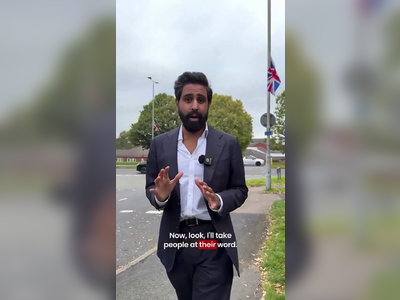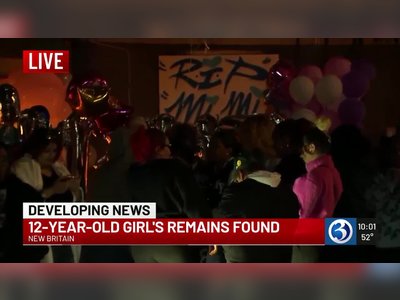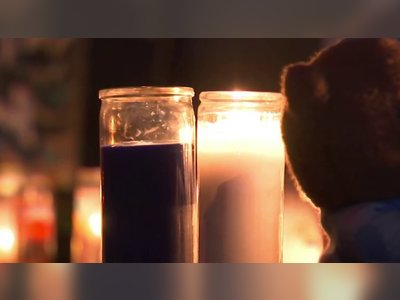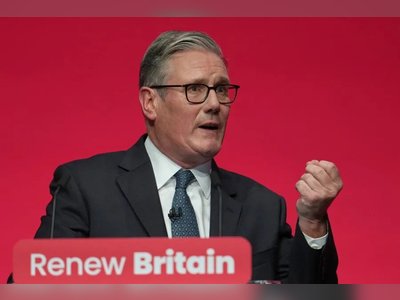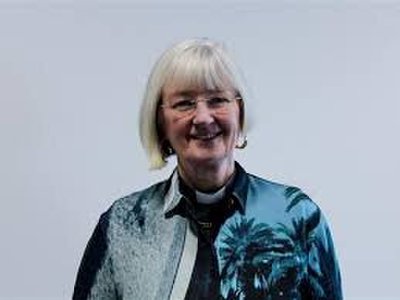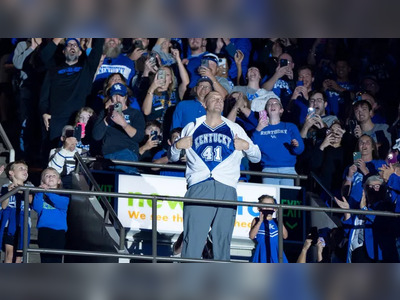NHS to Provide Free Morning-After Pill at Pharmacies Across England
Government initiative aims to eliminate disparities in access to emergency contraception.
The government of England has announced that the morning-after pill will be available without charge at pharmacies throughout the National Health Service (NHS) as part of an initiative to address the disparities in access to emergency contraception, often described as a 'postcode lottery'.
The morning-after pill, used by women after unprotected sex or contraception failure, is one of two forms of emergency contraception, the other being the copper coil, which is deemed more effective but requires medical fitting within five days.
The morning-after pill can be taken at home and must be administered within three to five days after intercourse to be effective.
However, the NHS has indicated that it may not be suitable for all women, particularly those needing steroid medications for conditions such as asthma or those who are overweight.
The medication functions primarily by preventing or delaying ovulation, rather than causing an abortion.
Currently, while the morning-after pill is available free of charge at most general practitioner (GP) surgeries, sexual health clinics, and some NHS walk-in centers, not all pharmacies provide it at no cost.
As a result, some women have reported paying as much as £30 for the medication.
Health Minister Stephen Kinnock underscored the importance of equitable access to emergency contraception, stating that disparities in access based on geographic location represent a significant issue in women's healthcare.
The initiative to make the morning-after pill freely available at community pharmacies aims to ensure that all women can access this crucial healthcare resource without financial barriers, irrespective of their locality.
The Department of Health and Social Care (DHSC) noted that this step would not only increase access to emergency contraception but also reduce demand for GP appointments.
Routine contraception has already been accessible for free through pharmacies, GPs, and local sexual and reproductive health services.
Nick Kaye, chair of the National Pharmacy Association, welcomed the announcement, emphasizing the long-standing call for national commissioning of emergency contraception.
He noted that unequal access and underfunding of local services have contributed to the challenges faced by patients.
Kaye also highlighted the financial pressures on pharmacies due to significant budget cuts over the past years, advocating for adequate reimbursement for these services.
Dr. Janet Barter, President of the Faculty of Sexual and Reproductive Health, expressed her approval of the initiative, indicating that uniform access across community pharmacies would eliminate financial, stigma-related, and accessibility barriers that have hindered many women from obtaining emergency contraception in the past.
This announcement is part of a broader governmental effort to reform community pharmacy services as outlined in the 'plan for change', which seeks to enhance service offerings and alleviate pressures on hospitals.
The DHSC has allocated an additional £617 million in funding to Community Pharmacy England over the next two years and is also writing off £193 million of debt owing to community pharmacy owners.
In addition to the free morning-after pill, the DHSC plans to provide support for individuals with depression through pharmacies when prescribed antidepressants, as well as expanding the range of services offered by pharmacy teams to include medicine and prescription advice.
Kinnock emphasized the critical role that community pharmacists play in local healthcare, asserting the government's commitment to enhancing their role in delivering care in community settings.
The morning-after pill, used by women after unprotected sex or contraception failure, is one of two forms of emergency contraception, the other being the copper coil, which is deemed more effective but requires medical fitting within five days.
The morning-after pill can be taken at home and must be administered within three to five days after intercourse to be effective.
However, the NHS has indicated that it may not be suitable for all women, particularly those needing steroid medications for conditions such as asthma or those who are overweight.
The medication functions primarily by preventing or delaying ovulation, rather than causing an abortion.
Currently, while the morning-after pill is available free of charge at most general practitioner (GP) surgeries, sexual health clinics, and some NHS walk-in centers, not all pharmacies provide it at no cost.
As a result, some women have reported paying as much as £30 for the medication.
Health Minister Stephen Kinnock underscored the importance of equitable access to emergency contraception, stating that disparities in access based on geographic location represent a significant issue in women's healthcare.
The initiative to make the morning-after pill freely available at community pharmacies aims to ensure that all women can access this crucial healthcare resource without financial barriers, irrespective of their locality.
The Department of Health and Social Care (DHSC) noted that this step would not only increase access to emergency contraception but also reduce demand for GP appointments.
Routine contraception has already been accessible for free through pharmacies, GPs, and local sexual and reproductive health services.
Nick Kaye, chair of the National Pharmacy Association, welcomed the announcement, emphasizing the long-standing call for national commissioning of emergency contraception.
He noted that unequal access and underfunding of local services have contributed to the challenges faced by patients.
Kaye also highlighted the financial pressures on pharmacies due to significant budget cuts over the past years, advocating for adequate reimbursement for these services.
Dr. Janet Barter, President of the Faculty of Sexual and Reproductive Health, expressed her approval of the initiative, indicating that uniform access across community pharmacies would eliminate financial, stigma-related, and accessibility barriers that have hindered many women from obtaining emergency contraception in the past.
This announcement is part of a broader governmental effort to reform community pharmacy services as outlined in the 'plan for change', which seeks to enhance service offerings and alleviate pressures on hospitals.
The DHSC has allocated an additional £617 million in funding to Community Pharmacy England over the next two years and is also writing off £193 million of debt owing to community pharmacy owners.
In addition to the free morning-after pill, the DHSC plans to provide support for individuals with depression through pharmacies when prescribed antidepressants, as well as expanding the range of services offered by pharmacy teams to include medicine and prescription advice.
Kinnock emphasized the critical role that community pharmacists play in local healthcare, asserting the government's commitment to enhancing their role in delivering care in community settings.
